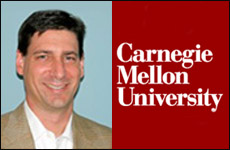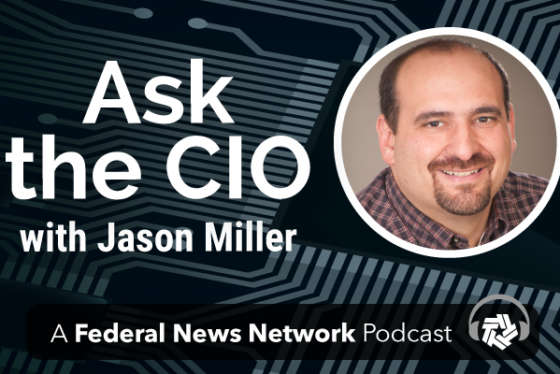Training the current and future crop of technology managers has never been tougher. But Carnegie Mellon’s CIO Institute is trying to ensure it addresses both the soft and hard skills that IT executives need to succeed.
Andrew Wasser, the associate dean in Carnegie Mellon University’s Heinz College School of Information Systems and Management and the executive director of the CIO Institute, said the classes try to align people, processes and technology to make sure the students can deal with the speed at which all three of these areas are changing.
“Some things have changed incredibly in the 15 years that we have been running this program. There are sensors on every device and on every bridge. There are agile practices that didn’t exist before. The data analytics and data science practices and just the shear enormity of the structured and unstructured data, and obviously mobile, cloud and all the social media has changed. In that respect, that is embedded in all of our classes,” Wasser said. “But the more interesting thing to me is that the thing that hasn’t changed is human beings haven’t changed. We are still resistant to change. It’s still difficult to build consensus. You still are dealing with difficult people. There are still talent shortages. So some of the organizational issues you have with running an operation, in terms of communicating your message, communicating a complex set of topics, discussing risk. Those things seem to transcend time. So trying to get those core human topics and how do they apply to the new world we now find ourselves in.”
Wasser said the challenges over the last 20 or 30 years have remained the same around culture and technology, but what’s different is trying to keep up with those changes and the ubiquity of technology.
Carnegie Mellon tries to address these issues in several classes as part of the CIO Institute certificate program. For instance, Wasser said the enterprise architecture class helps students figure out how best to meet both enterprise and individual office technology needs so shadow IT doesn’t take hold.
He said another class is focused on strategy and communication, which is more to the point of how best to manage a CIO’s message and goals.
“One thing that is interesting, people hear about all those things going on in data analytics or cybersecurity or agile, and whenever they come and talk to us, they always start out by apologizing. They say, ‘I work for a pharmaceutical company, or the government, or the hospital or the bank and we are way behind in all these areas,’” Wasser said. “And everyone thinks they are behind because they are reading and watching the media and think everyone is doing all this cool stuff with predictive analytics and with modular systems. The truth of the matter is, you are not behind and everybody is feeling that same pressure.”
Wasser said by just acknowledging and recognizing that everyone is challenged by the same things, the classes try to address the practical side of using these leading edge tools and technology.
“We have topics that we have introduced on just communicating complexity,” he said. “When we talk to chief information security officers and CIOs one of the key things they tell us is they have difficulty communicating to their senior management, to their suppliers, to their customers the threats, the opportunities and the challenges they are facing. You’d think the problems they are facing are technology … but it’s not, it’s simply in the communication side.”
Part of the reason Carnegie Mellon focuses on these soft skills is many CIOs come in with deep knowledge in the technology and how it works. But they aren’t good at explaining the benefits and challenges to non-IT people, he said.
The CIO Institute program at Carnegie Mellon University is made up of eight 3-day modules on everything from process and performance management to information assurance to IT acquisition and program management.
Wasser said the modules are all face-to-face at the university’s Arlington, Virginia. campus. Admission is on a rolling basis, so students can join whenever the next module is starting up.
Wasser said class size is between 16 and 20 students with a mix of federal and state government and private sector attendees.
“We have participants from the FBI, Homeland Security Department, the State Department, the Postal Service as well as the Transportation Department in Wyoming, and people from banks and hospitals and manufacturing companies,” he said. “What the most exciting part of this is someone will say in health care we do it this way, and someone else will say in the oil and gas industry we face this challenge and someone else will say I work in State Department and here’s what we do, and it’s all about trying to create an environment for networking and continued engagement.”
Carnegie Mellon also recently created a new chief information security officer (CISO) program. Wasser said the curriculum grew out of the need for more education and training around cybersecurity because many students felt a 3-day module just wasn’t enough.
The CISO program meets both in person in Pittsburgh and virtually over a 6-month period. There are 13 modules covering everything from cyber risk management and security metrics to managing the operational threat to developing a robust communications strategy.
The cost for the CIO program is $2,950 for the private sector and $2,500 for federal employees per module.
The CISO program costs about $15,000 over 6 months.
Wasser said if a student successfully completes either program, all the money spent on the certificate can be put toward a Master’s program at Carnegie Mellon.
Copyright
© 2024 Federal News Network. All rights reserved. This website is not intended for users located within the European Economic Area.

